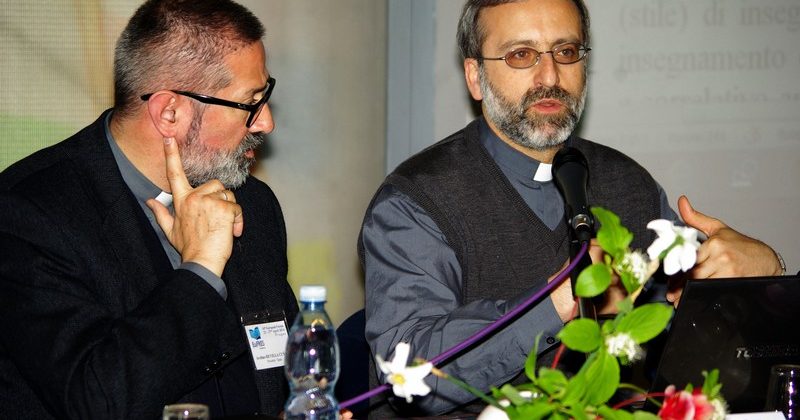EuFRES – XV. European Forum for Religious Education in Schools
The Teaching of Religion and Social Cohesion in Europe
Proposals for the Training of Teachers
Final Communiqué
11-15th of April 2012 at the residence Fray Luis de León-House di Guadarrama of the Archdiocese of Madrid took place the 15th European Forum for Religious Education in Schools for theologians and experts of Religious Education coming from 13 various European countries. The experts focused on the issues concerning the teaching of religion, and its educational contribution to social cohesion in European societies, analysing various sceneries of Religious Education in the school system of many European countries. The given talks, interventions, the discussion group the contributions and papers submitted from every country have brought the following interesting insights:
- The actual situation of living together of the different cultures in Europe as a consequence of massive increasing number of migrations phenomena implicates the clash of various cultures and religions even in the smallest places in Europe; this means that the cultural and interreligious dialogue turns to a necessary imperative and should build on the basis of the respect of the identity of every one.
- In the process of recognition of the values which underpin the European Community, the Catholic Church and other Christian churches have played a crucial role and should continue to do it in the future in order to easy the difficult journey towards European unity through respect to the different beliefs. The European Community cannot longer confine itself to guarantee freedom of expression of the churches in the public sphere, but rather is called on to a mutual constructive dialogue to these topics.
- Religious Education in schools is called to present a contribution to reinforce the social bindings, solidarity and fraternity among the individuals and the particular groups. This target should be reached not only through philosophical and theological contents which are taught in religious education but – in the essential way – through competences and the pedagogical attitude of the teacher.
- The school is called to offer the opportunity to learn more about the religious phenomenon and to evaluate their validity and the contribution to the integral development of the human being. As a consequence the training of RE teachers in Europe must deal with not only the substantive and socio-communicative skills, but also with the personal and existential competence, overcoming patterns of “teaching about religion” and “teaching from religion”, to arrive at real “in teaching in/ through religion”.
- In various countries of Europe the situation of Religious Education is much diversified. The confessional religious education (in some countries do not yet adequately distinct from catechesis, which not intends cultural or educational but ecclesiastical targets) is not only the most common but also preferred form.
- The quality of initial and continuing training of teachers is a necessary tool to ensure their social and professional recognition, and to further develop their educational role in the European School. It advocates the establishment of a “panel” of professional and pedagogical skills necessary for the new teachers.
- The presence of a representative of CoGREE has effectively broadened the perspective of Catholic discourse to a wider context and enriched with the ecumenical dimension for the European space.
11-15 April 2012, Guadarrama/Madrid

